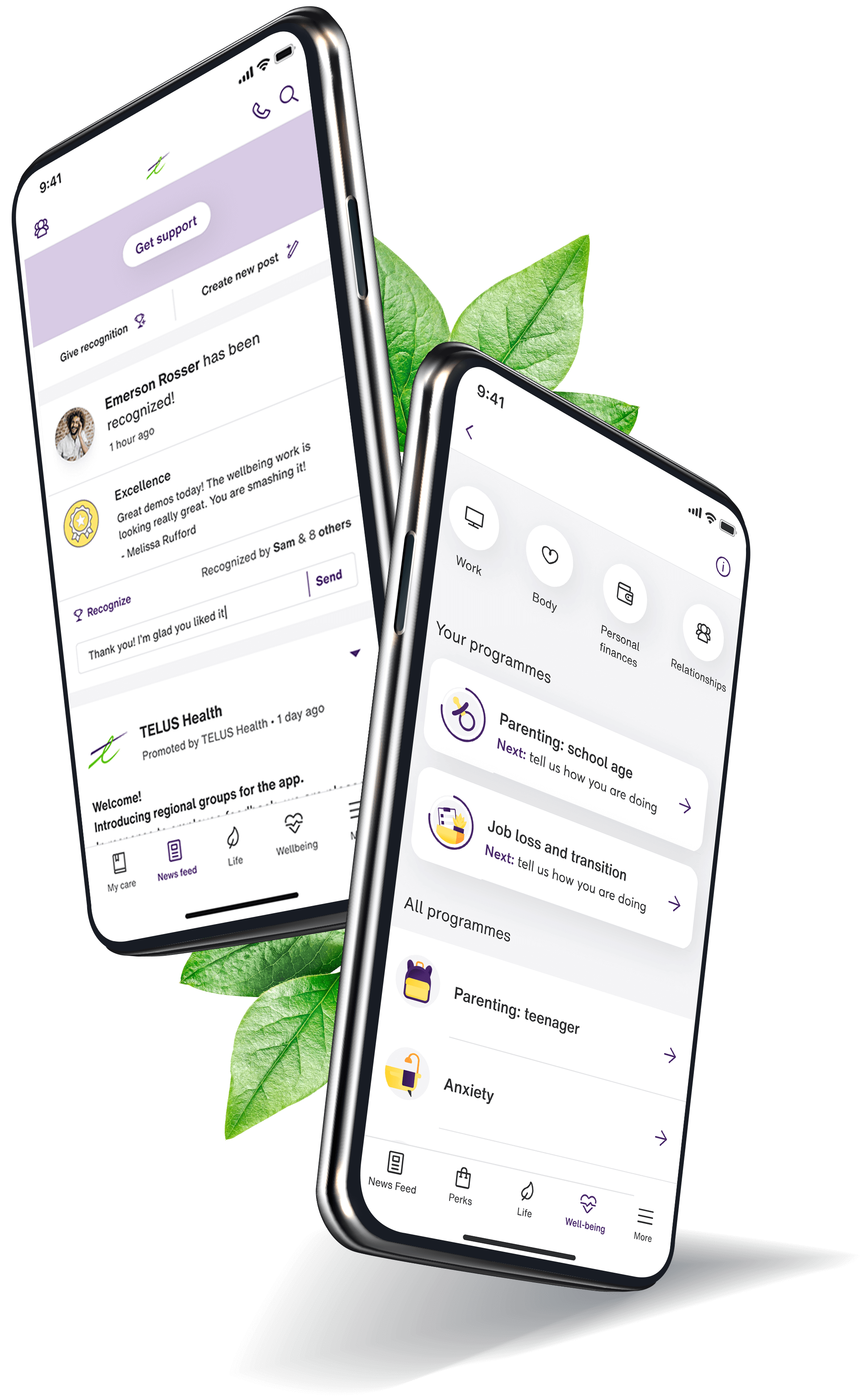Building your resilience with self-care
Resilience is the ability to adapt well in the face of adversity, such as when experiencing personal or family issues, a serious health concern, work stress, money worries, or other challenges. It's the ability to bounce back from challenges. One of the best ways to build resilience is to focus on self-care. Here are five ways to take care of yourself to help build your resilience.
Pay Attention to Your Physical Self-Care
Make exercise a priority. This is especially important during challenging times. Try to get a minimum of 30 minutes of exercise that makes you breathe harder on all or most days of the week, whether walking, swimming, cycling, working out at the gym or with an exercise video, or even doing vigorous housework. Just make sure you check with your doctor before starting a new exercise programme.
Follow a healthy diet. Avoid junk food and fast food. Limit how much alcohol you drink; over time, it depletes your energy and resilience.
Follow good sleep practices. Establish a bedtime routine and try to stick to it. It can be as simple as listening to soft music, drinking a cup of herbal tea, taking a bath, and then turning off the lights simultaneously every night. Try not to watch TV programmes or films that are disturbing or too stimulating, as it may be challenging to turn off your brain. Try to unload what's on your mind before you go to bed.
Reframe How You View Problems and Challenges
A key element of resilience is your perception of an event. As Shakespeare says,
'.. there is nothing good or bad, but thinking makes it so.'
Reframe a difficult experience. Reframing means changing the way you think or "talk" to yourself about a stressful event. Instead of saying, "I will never get through this," you could try a more positive and realistic thought such as, "I will get through this by using the techniques that have helped when I've had difficult experiences in the past, including asking others for help and finding strength in my community."
Remember that stressful events usually provide opportunities to learn and grow. Try to identify these so that they can help you in the future. For example, if you are dealing with significant financial concerns, try to understand the things that contributed to your situation and what you could do in the future to avoid repeating the same mistakes (i.e. reduced dependence on credit cards, not carrying an overdraft, making a budget, etc.)
Build Your Emotional Resilience
Learn from others who are role models of resilience. Think about other people you know and admire who are resilient, whether they are public figures or people you may know in your personal or work life. What strategies have you noticed them using to deal with and stay strong through adversity? Think about how you could adapt and use some of those strategies in your own life.
"This too shall pass." Try to see your situation as temporary, no matter how difficult. Life tends to ebb and flow in ways that are impossible to predict. This view can help you gain perspective and maintain momentum to work through the current circumstances.
Try to avoid catastrophic thinking. During times of uncertainty, we often try to fill in the blanks. We may wonder, "What if this happens?" and imagine worst-case scenarios. While it is good to be prepared, worst-case scenarios rarely come true.
Give Yourself a Break From Media
When a national or world event is dominating the news, avoid over-exposure to media, especially if it makes you feel ineffective, anxious, or unable to control your life. Many media-worthy events can be presented exaggeratedly or falsely to attract attention. Try to unplug for part of each day from all your media and news sources.
Keep Your Life Simple
Simplifying your life is especially important during stressful times.
Simplify your routines and set limits to protect your time. Plan simple meals. Resist signing up for too many activities or over-committing yourself. Don't be afraid to say "no."
Make time for simple pleasures, such as watching the sunset, playing with your pet, or simply sitting and drinking a good cup of tea with someone you love.
Practise Relaxation Techniques
Deep breathing, meditation, mindfulness, and yoga are four widely used relaxation techniques that can help improve mental and physical wellbeing. Do whatever you can to feel better and calm down. It will help you build resilience.


